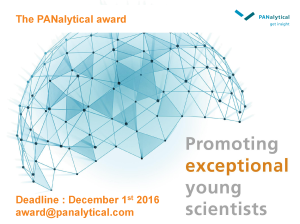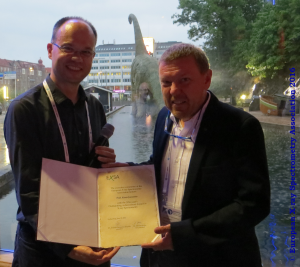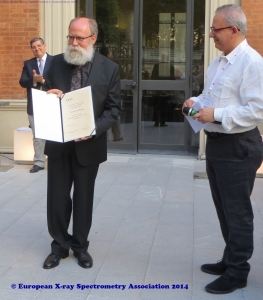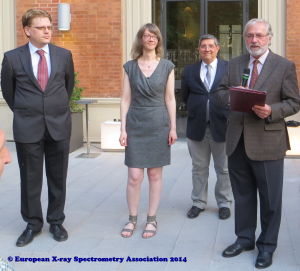Outstanding Achievement Award 2018
Friday, June 29th, 2018Two independently working committees, i.e. the Nomination and the Decision Committee, have singled out two decisive keywords this year: Reference-free analysis and Fundamental parameters. Both keywords are tightly connected to, if not reflecting perfectly the work of the 2018 Outstanding Achievement Award recipient.
Burkhard Beckhoff was distinguished for his contributions in the development of reference free methods for the characterization of novel materials. Together with the members of his group, he has undertaken essential work to provide novel experimental and theoretical methodologies in the field of reference-free X-Ray Spectrometry to the scientific community and pursues his efforts to push their limits in terms of characterization or application potential. He is also recognized for the determination or improvement of relevant fundamental parameters, which are of great importance both in fundamental and theoretical, applied or industrial research. His commitments within the International initiative on X-ray fundamental parameters, which is supported by EXSA, as well as various European and International XRS communities, were unanimously highlighted.
During the conference dinner of the EXRS 2018, in Ljubljana, Slovenia, the newly re-elected president of EXSA, Michael Kolbe bestowed the EXSA Outstanding Achievement Award 2018 to Burkhard Beckhoff.
EXSA would like to thank the members of the Nomination Committee and of the Decision Committee for their work and wish to congratulate sincerely once again the laureate.









